1 July 2014 Edition
Fermanagh & South Tyrone – crossroads in history
Annual Hunger Strike Commemoration – Derrylin Main Street – 2:30pm Sunday 3 August
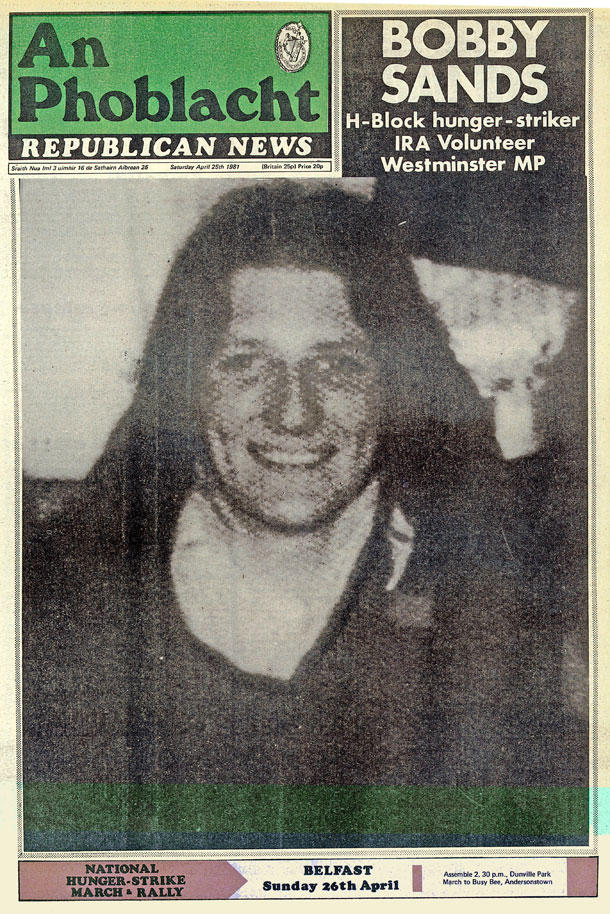
The contest between Bobby Sands and Ulster Unionist Harry West may be the most renowned but it was not the only one
“SANDS, BOBBY . . . Anti H-Block Armagh Political Prisoner . . . Thirty thousand, four hundred and ninety-two,” said the returning officer as he announced the result of the Fermanagh & South Tyrone by-election held on 9 April 1981.
A single cheer interrupted him after he said “thirty thousand” and before he could add the “four hundred and ninety-two”, more in a sense of relief as opposed to a victory cry as many hoped that, by getting Bobby Sands elected, Margaret Thatcher’s British Government would come to the negotiating table and would not allow a MP to die on hunger strike.
Our hopes and prayers were to be dashed. On 5 May 1981, Volunteer Bobby Sands MP became the first of ten H-Block martyrs who would die on hunger strike.
For those republicans who witnessed those events, it is a day that they will never forget as Bobby Sands had been elected against all the odds. This was the first foray into electoral politics by the Republican Movement in the modern era but one that had been forced upon it by the continuing Hunger Strike campaign in the H-Blocks and Armagh Jail for the restoration of political status.
Organising an electoral campaign was new to republicans in 1981 and not only were people inexperienced in canvassing, working electoral registers, applying for postal votes and proxies and all the other administration surrounding elections but there was also the campaign of relentless harassment from the British Army, the Ulster Defence Regiment and RUC to contend with.
But republicans in the heartlands of Fermanagh & South Tyrone were not to be deterred. Supported by comrades from the length and breadth of Ireland, they took to the streets of every town and village and walked every country lane in the constituency, determined to get Bobby elected as MP.
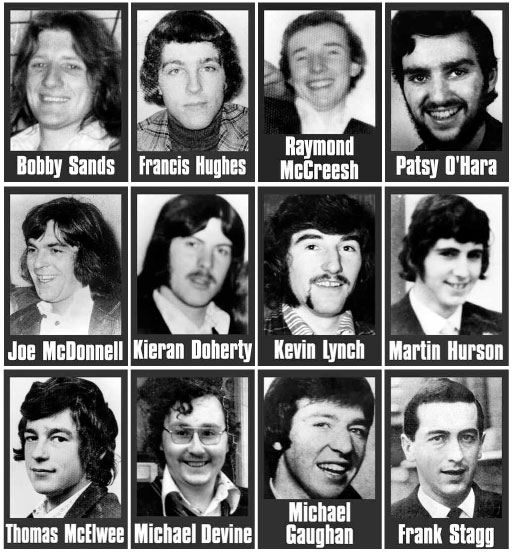
This year, the annual Hunger Strike Commemoration is to be held in Fermanagh as we commemorate the 33rd anniversary of the deaths of these ten brave young men and the other Irish Hunger Strikers who gave their lives to deny the British Government’s age-old attempts to criminalise the struggle for Irish freedom.
On 3 August, thousands will rally in Derrylin to commemorate the patriot dead who took such courageous decisions to defend the honour of the Irish struggle by going on hunger strike to the death.
For many people, the campaign to get Bobby Sands elected was probably the first time they took part in an election campaign but for the people of Fermanagh & South Tyrone it was not the first (nor would it be the last) time that the battle between unionism and republicanism has come down to a face-off.
The contest between Irish republican Bobby Sands and Ulster Unionist Harry West which saw Bobby Sands triumph by over 1,400 votes may well be the most renowned but it was not the only one.
Since the inception of the constituency in 1950, there has been head-to-head battles six times between nationalist/republican and unionist candidates. Nationalist/republican candidates won on five occasions although the courts installed a unionist candidate as MP in 1955 even though he had lost the election!
In 1950, Cahir Healy, a former member of Sinn Féin and a political prisoner, was elected to the seat in a close contest against the Ulster Unionist Party and he was re-elected in 1951 with an increased majority in an election that scored a record 93.4% turn-out.

• In 1955, Sinn Féin took the seat for the first time when political prisoner Philip Clarke defeated Ulster Unionist Party candidate Lord Grosvenor by 261 votes
In 1955, Sinn Féin took the seat for the first time when political prisoner Philip Clarke defeated Ulster Unionist Party candidate Lord Grosvenor by just 261 votes.
Captured during a daring IRA raid on Omagh Barracks, Philip was serving ten years in jail at the time of his election and at 22 years of age he was (at the time) the youngest MP ever elected.
Given the fact that Philip Clarke was imprisoned, Lord Grosvenor took a case to the High Court in Belfast and lodged a petition to have Clarke’s election deemed unlawful. The High Court overturned the democratic result, disregarding the republican majority, and installed unionist Lord Grosvenor as the MP.
Margaret Thatcher’s Westminster Government in 1981 would implement a similar policy by changing the law to stop other political prisoners from standing for the British Parliament to prevent a repeat of the embarrassment caused to them by the election of Bobby Sands.
The election of 1959 was to be a disaster for the Republican Movement and one from which the nationalist community would not recover from until 1970.
On the back of the ongoing IRA Border campaign, Operation Harvest, the Sinn Féin candidate, James Martin, saw the vote decrease by 38% and the re-election of the unionist candidate Lord Grosvenor.
While this would be the only time that a unionist would outpoll a republican candidate in a two-way contest, they continued to hold the seat until ‘Unity’ candidate Frank McManus took the seat back for nationalism in 1970.
In February 1974, the newly-formed SDLP stood a candidate, splitting the nationalist vote and allowing unionism to take the seat back for eight months before Frank Maguire would be elected in November of that year as a stand-alone ‘Independent Republican’ candidate.
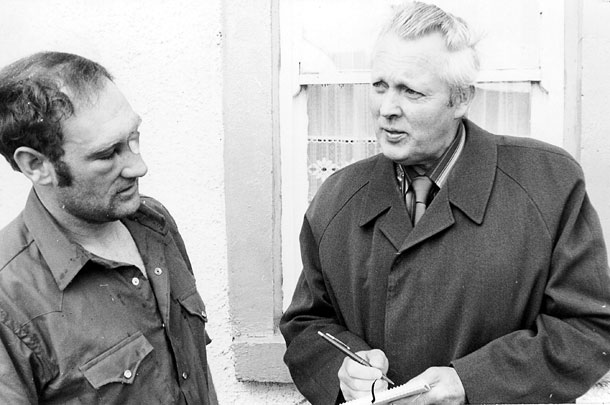
• In 1974, Frank Maguire was elected as a stand-alone ‘Independent Republican’ candidate
The vacant seat caused by the sudden and unexpected death of Frank Maguire on 5 March 1981 presented the Republican Movement with an opportunity but also a quandary. By standing Bobby Sands as a candidate, winning the seat would thrust the plight of the Hunger Strikers and the campaign for political status onto a global stage; however, there was also the risk of defeat, which would allow the British Government to imply that the prisoners had no support and effectively end their campaign.
The decision was taken to participate. Bobby Sands was elected and sent shockwaves through the British establishment. The world could see that there was huge support for the prisoners and the British myth of a criminal conspiracy rather than a political struggle for Irish freedom was exposed and defeated.
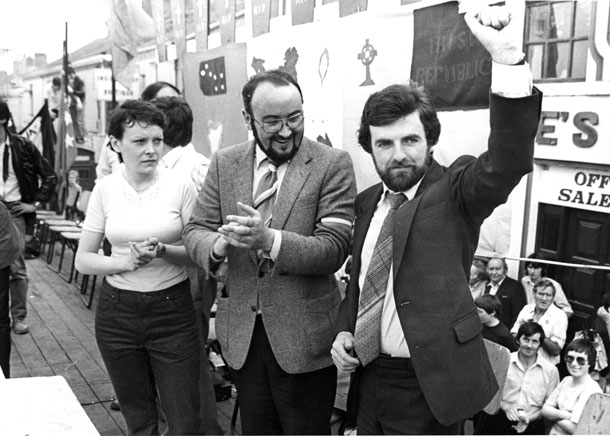
• Síle Darragh and Caoimhghín Ó Caoláin with Owen Carron MP, who retained the seat won by Bobby Sands
In the August 1981 by-election caused by Bobby’s death, Owen Carron, Bobby’s election agent, was selected to defend the seat and he won by over 2,200 votes against Ulster Unionist Party’s Ken Maginnis, a former major in the Ulster Defence Regiment.
The Republican Movement at the time was quick to understand that a whole new arena of struggle had been opened up and that the possibilities were endless in moving towards the goal of reunification.
Sinn Féin would be totally reorganised from the bottom up over the next few years to make it fit for purpose and to take on the much-needed political role that would serve the needs of our communities and get activists elected as public representatives, people whose voices could articulate the aims and desires of republicans.
In 1983, however, the SDLP rode to the rescue of unionism once again by splitting the nationalist vote, allowing former UDR Major Ken Maginnis to take and hold the seat until 2001.
Following the signing of the Good Friday Agreement on 10 April 1998, Sinn Féin selected a young woman, Michelle Gildernew, as its candidate. The Gildernew family epitomised Civil Rights struggle when they took a stand for the right to have a home in Caledon in 1968.
In June 2001, Sinn Féin took back the seat with Michelle winning the seat by 53 votes because although the SDLP split the nationalist vote, the unionist vote was also split. Michelle retained the seat in 2005 and was selected to stand again in 2010.
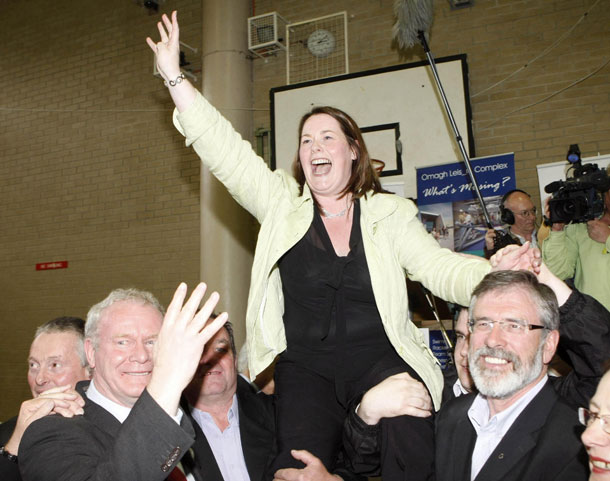
• Michelle Gildernew won in 2010 by just four votes, proving that ‘every vote counts’
The SDLP had split the nationalist vote again even though they had no chance of taking the seat and Michelle won by just four votes after several tense recounts against an agreed unionist ‘Unity’ candidate.
This election proved beyond doubt that every vote counts.
Unionism attempted to have the count overturned by going to court as they had done in 1955 but they failed and Sinn Féin continues to hold the seat.
Sinn Féin victories in both the European and local government elections in May 2014 makes Sinn Féin the biggest party on the island of Ireland for the first time since 1918 with representatives covering every inch of the country from Derry to Kerry and Galway to Dublin.
Next May, republicans face another election to Westminster.
The Sinn Féin party has now one of the most efficient and experienced electoral machines in Ireland, an achievement that can be traced back to five weeks of campaigning in Fermanagh & South Tyrone in 1981 and the prison protests and Hunger Strikes of 1980 and 1981.
On Sunday 3 August the people of Fermanagh & South Tyrone will again turn out and stand strong to give due respect and honour to the Hunger Strikers. And, just like 1981 when, against all the odds, including the British and Irish Establishments and the intimidation by the British war machine, they elected Volunteer Bobby Sands as ‘The People’s MP’.
It is important that as we continue building political strength we remember our comrades who had the foresight and bravery to pioneer electoral politics, so let’s turn up in Derrylin on 3 August and celebrate the lives of the Hunger Strikers who gave everything so we can be where we are at today and one day we can be free.
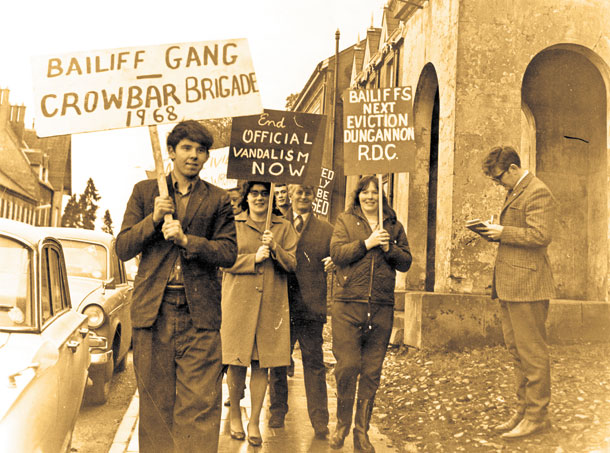
• The Gildernew family epitomised the Civil Rights struggle with their stand in Caledon for the right to a home





